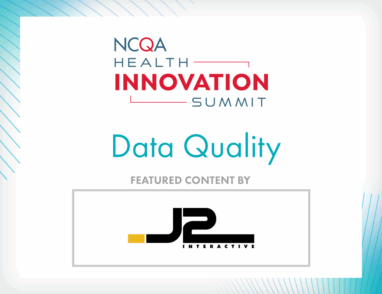The YOU FIRST Approach to Quality Measurement
April 18, 2024 · Andy Reynolds
- A new kind of quality measure is gaining traction: Person-Centered Outcome (PCO) measures that focus on measuring what matters to patients.
- Mounting evidence shows PCO measures are feasible and that providers and patients like them.
- A recent NCQA webinar discussed encouraging findings from our latest round of PCO testing, prompting us to begin recruiting Special Needs Plans to test PCO measures.
The Value of PCO Measures
PCO measures are personalized, structured, measurable goals for adults who require complex care because of one or more chronic conditions due to medical, behavioral health or social needs.
Most quality measures focus on specific diseases or health conditions. PCO measures are different and more flexible, and they relate to what patients care about—often they are practical, specific aspirations like “Walking my daughter down the aisle at her wedding in 3 months.”
Standardizing PCO measures comes from translating patient preferences into a SMART sequence of three measures:
- Measure 1 – Goal Identification. The patient and provider agree on:
- A goal that matters to the patient.
- How to document and track the goal, using either:
- Patient-Reported Outcome Measure: A standardized questionnaire or survey.
- Goal Attainment Scaling: Comparing progress against a continuum of possible outcomes.
- A plan to reach the goal.
- Measure 2 – Goal Follow-up. Providers follow up on the goal, 2 weeks to 6 months after the patient and provider agreed on it.
- Measure 3 – Goal Achievement. The “outcome” part of PCO: Was the goal met?
PCO measures have long been in geriatric care. Now, they’re proving useful in more populations and places.
Generous support from The John A. Hartford Foundation, The SCAN Foundation and Gordon and Betty Moore Foundation has allowed NCQA to study PCO measures:
- In 30 practices across 17 states.
- Among more than 180 clinicians and 5,000 clients or patients.
- In varied settings, including Certified Community Behavioral Health Clinics (CCBHC), behavioral health homes, home-based primary care practices, home and community-based services programs and serious illness programs.
Testing shows PCO measures work!
Our March webinar on PCO measures featured clinic managers who helped us test PCO measures in a multi-state learning collaborative.
Feedback was positive:
- “It was a good way to engage and hit an on-ramp to get to what members wanted to work on.”
- “This approach made it easier to focus and think about what patients wanted.”
- “These measures are great. It sets a visual on progress made.”
Our research also shows that the PCO approach helps patients feel heard and more involved in their care.
PCO Measurement Supports Other Goals
HEALTH EQUITY
Everyone deserves the chance to be as healthy as possible, no matter who they are or where they come from.
PCO measures advance health equity by:
- Translating people’s priorities into care plans.
- Making goal achievement part of quality assessment.
- Giving providers a common language for tracking services patients care about.
The CMS National Quality Strategy emphasizes health equity and person-centered care, creating a mutually reinforcing relationship.
BEHAVIORAL HEALTH
Behavioral health is a NCQA priority, so it’s no surprise that our March webinar celebrated the successful test of PCO measures in CCBHCs:
- PCO measures are for people with complex care needs.
- Behavioral healthcare is complex.
- Standardizing outcome measures is hard.
PCO measures’ flexibility means they’re a good match for assessing behavioral healthcare.
See our free PCO toolkit and courses, which include modules about behavioral health. (Details below.)
What’s Next
We’re expanding usage of PCO measures into other areas:
- Care delivery. PCO measurement is now an elective in our Patient-Centered Medical Home and Patient-Centered Specialty Practice Recognition programs.(Using PCO is part of our interest in adapting HEDIS for the delivery system—a goal we’ve covered in Future of HEDIS webinars since 2019.)
- Long-Term Services and Supports. Starting next year, our LTSS programs will include PCO elements.
- HEDIS. Expect to see PCO measures in our main measure set by 2027.
How You Can Use PCO
SPECIAL NEEDS PLANS
- Join our learning collaborative. We’re looking for 3–5 SNPs to join a learning collaborative that will implement and test PCO measures.
SNPs, this is your chance get a head start and help us plot a better path to measuring quality! Email us if you’re interested.
ANY HEALTH PLANS
- Use our PCO Toolkit. FREE resources for implementing PCO measures: Examples from primary care, LTSS and behavioral health; patient information in seven languages to help you tailor care for diverse people and groups.
- Get FREE training. Earn Continuing Education Units as you learn about:
ANYONE INTERESTED IN PERSONALIZED CARE
- Contact our PCO team. We can answer your questions, and we want to hear your ideas about this promising way to measure quality.







